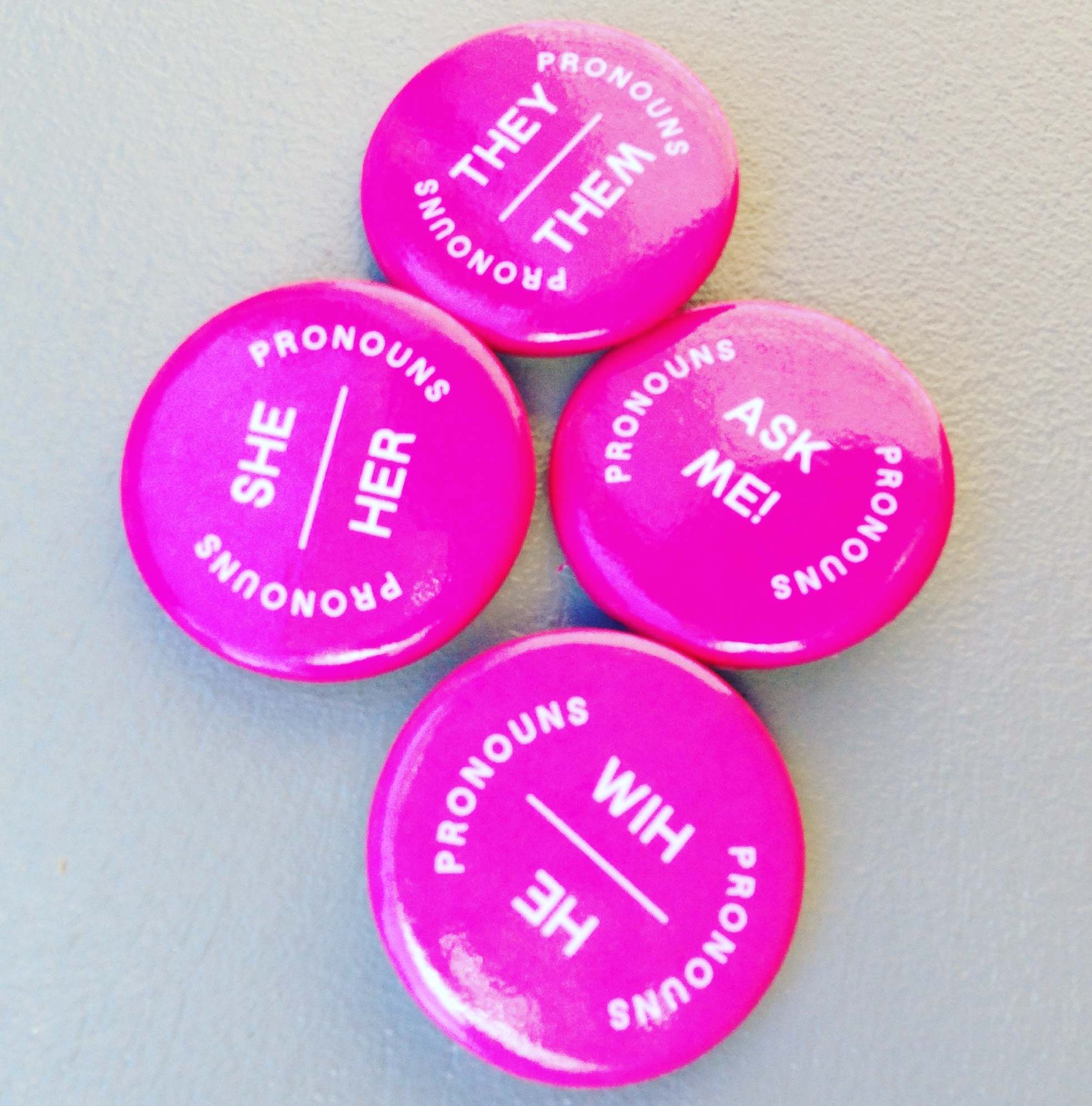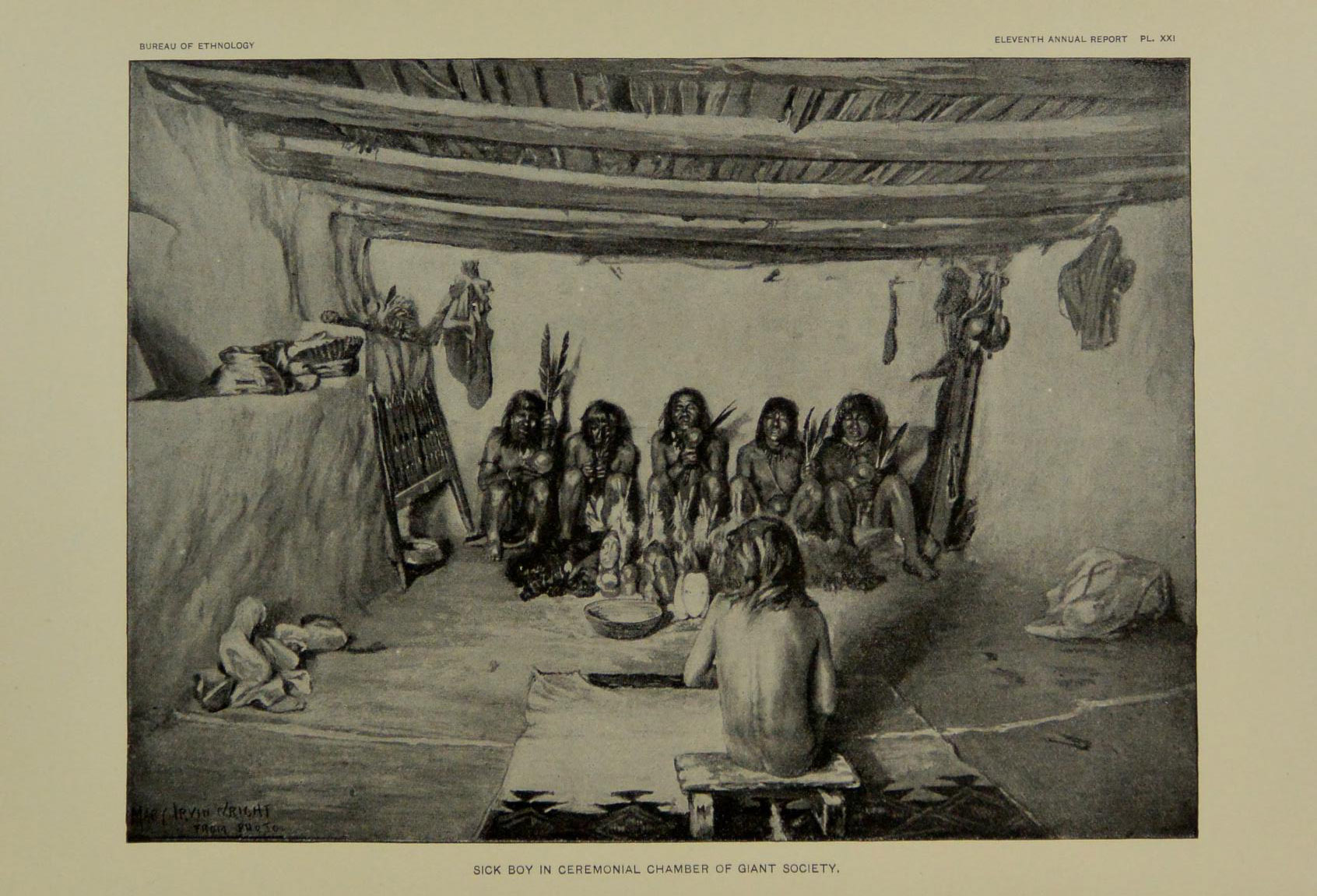|
Lhamana
''Lhamana'', in traditional Zuni culture, are biologically male people who take on the social and ceremonial roles usually performed by women in their culture, at least some of the time. Page 269 They wear a mixture of women's and men's clothing and much of their work is in the areas usually occupied by Zuni women. Some contemporary ''lhamana'' participate in the pan-Indian two-spirit community. The most famous lhamana was We'wha (1849–1896), who in 1886 was part of the Zuni delegation to Washington D.C., where they met with President Grover Cleveland. Social role Accounts from the 1800s note that the ''lhamana'', while dressed in "female attire", were often hired for work that required "strength and endurance",Matilda Coxe Stevenson, The Zuni Indians: Their Mythology, Esoteric Fraternities, and Ceremonies, (BiblioBazaar, 2010) p. 380 such as hunting big game and chopping firewood.Gilley, Brian Joseph (2006). ''Becoming Two-Spirit: Gay Identity and Social Acceptance in ... [...More Info...] [...Related Items...] OR: [Wikipedia] [Google] [Baidu] |
Preferred Gender Pronoun
Preferred gender pronouns or personal gender pronouns (often abbreviated as PGP) are the set of pronouns (in English, third-person pronouns) that an individual wants others to use in order to reflect that person's gender identity. In English, when declaring one's chosen pronouns, a person will often state the subject and object pronouns (e.g. "he/him", "she/her", "they/them"), although sometimes, the possessive pronouns are also stated (e.g. "she/her/hers", "he/him/his", "they/them/theirs"). The pronouns chosen may include neopronouns such as "ze" and "zir". Rationale and use In English, when declaring one's pronouns, a person will often state the subject and object pronouns, for example "he/him", "she/her", or "they/them"; sometimes, the possessive pronouns are also stated ("she/her/hers", "he/him/his", or "they/them/theirs"). A person who uses multiple pronouns (either interchangeably or in different contexts) may list both subject pronouns, for example "she/they" or "they/he" ... [...More Info...] [...Related Items...] OR: [Wikipedia] [Google] [Baidu] |
Genderqueer
Non-binary and genderqueer are umbrella terms for gender identities that are not solely male or femaleidentities that are outside the gender binary. Non-binary identities fall under the transgender umbrella, since non-binary people typically identify with a gender that is different from their assigned sex, though some non-binary people do not consider themselves transgender. Non-binary people may identify as an intermediate or separate third gender, identify with more than one gender, no gender (agender), or have a fluctuating gender identity (genderfluid). Gender identity is separate from sexual or romantic orientation: non-binary people have various sexual orientations. Being non-binary is also not the same as being intersex; most intersex people identify as either male or female. Non-binary people as a group vary in their gender expressions, and some may reject gender identity altogether. Some non-binary people are medically treated for gender dysphoria with surgery or h ... [...More Info...] [...Related Items...] OR: [Wikipedia] [Google] [Baidu] |
Gender Roles
A gender role, also known as a sex role, is a social role encompassing a range of behaviors and attitudes that are generally considered acceptable, appropriate, or desirable for a person based on that person's sex. Gender roles are usually centered on conceptions of masculinity and femininity, although there are exceptions and variations. The specifics regarding these gendered expectations may vary among cultures, while other characteristics may be common throughout a range of cultures. In addition, gender roles (and perceived gender roles) vary based on a person's race or ethnicity. Gender roles influence a wide range of human behavior, often including the clothing a person chooses to wear, the profession a person pursues, the personal relationships a person enters, and how they behave within those relationships. Although gender roles have evolved and expanded, they traditionally keep women in the "private" sphere, and men in the "public" sphere. Various groups, most notab ... [...More Info...] [...Related Items...] OR: [Wikipedia] [Google] [Baidu] |
Transgender
A transgender (often abbreviated as trans) person is someone whose gender identity or gender expression does not correspond with their sex assigned at birth. Many transgender people experience dysphoria, which they seek to alleviate through transitioning, often adopting a different name and set of pronouns in the process. Additionally, they may undergo sex reassignment therapies such as hormone therapy and sex reassignment surgery to more closely align their primary and secondary sex characteristics with their gender identity. Not all transgender people desire these treatments, however, and others may be unable to access them for financial or medical reasons. Those who do desire to medically transition to another sex may identify as transsexual. ''Transgender'' is an umbrella term. In addition to trans men and trans women, it may also include people who are non-binary or genderqueer. Other definitions of ''transgender'' also include people who belong to a third gender, or ... [...More Info...] [...Related Items...] OR: [Wikipedia] [Google] [Baidu] |
LGBT
' is an initialism that stands for lesbian, gay, bisexual, and transgender. In use since the 1990s, the initialism, as well as some of its common variants, functions as an umbrella term for sexuality and gender identity. The LGBT term is an adaptation of the initialism ', which began to replace the term ''gay'' (or ''gay and lesbian'') in reference to the broader LGBT community beginning in the mid-to-late 1980s. When not inclusive of transgender people, the shorter term LGB is still used instead of LGBT. It may refer to anyone who is non-heterosexual or non-cisgender, instead of exclusively to people who are lesbian, gay, bisexual, or transgender. To recognize this inclusion, a popular variant, ', adds the letter ''Q'' for those who identify as queer or are questioning their sexual or gender identity. The initialisms ''LGBT'' or ''GLBT'' are not agreed to by everyone that they are supposed to include. History of the term The first widely used term, '' homosexual'', ... [...More Info...] [...Related Items...] OR: [Wikipedia] [Google] [Baidu] |
Queer Studies
Queer studies, sexual diversity studies, or LGBT studies is the education of topics relating to sexual orientation and gender identity usually focusing on lesbian, gay, bisexual, transgender, gender dysphoria, asexual, queer, questioning, intersex people and cultures. Originally centered on LGBT history and literary theory, the field has expanded to include the academic study of issues raised in archaeology, sociology, psychiatry, anthropology, the history of science, philosophy, psychology, sexology, political science, ethics, and other fields by an examination of the identity, lives, history, and perception of being queer. Queer studies is not the same as queer theory, which is an analytical viewpoint within queer studies (centered on literary studies and philosophy) that challenges the putatively "socially constructed" categories of sexual identity. Background Queer is the implicit identity of gender and sex, and how it is incorporated in individuals lives. It can be u ... [...More Info...] [...Related Items...] OR: [Wikipedia] [Google] [Baidu] |
European Colonization Of The Americas
During the Age of Discovery, a large scale European colonization of the Americas took place between about 1492 and 1800. Although the Norse had explored and colonized areas of the North Atlantic, colonizing Greenland and creating a short term settlement near the northern tip of Newfoundland circa 1000 CE, the later and more well-known wave by the European powers is what formally constitutes as beginning of colonization, involving the continents of North America and South America. During this time, several empires from Europe—primarily Britain, France, Spain, Portugal, Russia, the Netherlands and Sweden—began to explore and claim the land, natural resources and human capital of the Americas, resulting in the displacement, disestablishment, enslavement, and in many cases, genocide of the indigenous peoples, and the establishment of several settler colonial states. Some formerly European settler colonies—including New Mexico, Alaska, the Prairies or northern Grea ... [...More Info...] [...Related Items...] OR: [Wikipedia] [Google] [Baidu] |
Matilda Coxe Stevenson
Matilda Coxe Stevenson (''née'' Evans) (May 12, 1849 – June 24, 1915), who also wrote under the name Tilly E. Stevenson, was an American Ethnology, ethnologist, geologist, explorer, and activist. She was a supporter of women in science, helping to establish the Women's Anthropological Society in Washington DC. Stevenson was also the first woman hired by the Bureau of American Ethnology (BAE) to research southwestern Indigenous people. In doing so, she published multiple monographs and one long text on the Zuni people, Zuni people. Her work was supported by some of her male colleagues at the time and was seen as a contemporary by some of her fellow ethnologists or anthropologists. However, she faced barriers as a woman scientist in the nineteenth and early twentieth centuries; in order to compete, she defied societal expectation which pushed some to regard her as stubborn and aggressive. Early life and education Matilda Coxe Evans was born in San Augustine, Texas, the third c ... [...More Info...] [...Related Items...] OR: [Wikipedia] [Google] [Baidu] |
Anthropologist
An anthropologist is a person engaged in the practice of anthropology. Anthropology is the study of aspects of humans within past and present societies. Social anthropology, cultural anthropology and philosophical anthropology study the norms and values of societies. Linguistic anthropology studies how language affects social life, while economic anthropology studies human economic behavior. Biological (physical), forensic and medical anthropology study the biological development of humans, the application of biological anthropology in a legal setting and the study of diseases and their impacts on humans over time, respectively. Education Anthropologists usually cover a breadth of topics within anthropology in their undergraduate education and then proceed to specialize in topics of their own choice at the graduate level. In some universities, a qualifying exam serves to test both the breadth and depth of a student's understanding of anthropology; the students who pass are pe ... [...More Info...] [...Related Items...] OR: [Wikipedia] [Google] [Baidu] |
She (pronoun)
In Modern English, ''she'' is a singular, feminine, third-person pronoun. Morphology In Standard Modern English, ''she'' has four shapes representing five distinct word forms: * ''she'': the nominative (subjective) form * ''her'': the accusative (objective, also called the 'oblique'.) form; the dependent genitive (possessive) form * ''hers:'' the independent genitive form * ''herself'': the reflexive form History Old English had a single third-person pronoun – from the Proto-Germanic demonstrative base *''khi''-, from PIE *''ko''- "this" – which had a plural and three genders in the singular. In early Middle English, one case was lost, and distinct pronouns started to develop. The modern pronoun '' it'' developed out of the neuter, singular in the 12th century. ''Her'' developed out of the feminine singular dative and genitive forms. The older pronoun had the following forms: The evolution of ''she'' is disputed. Some sources claim it evolved "from Old English ''seo ... [...More Info...] [...Related Items...] OR: [Wikipedia] [Google] [Baidu] |
Zuni People
The Zuni ( zun, A:shiwi; formerly spelled ''Zuñi'') are Native American Pueblo peoples native to the Zuni River valley. The Zuni are a Federally recognized tribe and most live in the Pueblo of Zuni on the Zuni River, a tributary of the Little Colorado River, in western New Mexico, United States. The Pueblo of Zuni is south of Gallup, New Mexico. The Zuni tribe lived in multi level adobe houses. In addition to the reservation, the tribe owns trust lands in Catron County, New Mexico, and Apache County, Arizona. The Zuni call their homeland ''Halona Idiwan’a ''or Middle Place. The word ''Zuni'' is believed to derive from the Western Keres language (Acoma) word ''sɨ̂‧ni'', or a cognate thereof. History Archaeology suggests that the Zuni have been farmers in their present location for 3,000 to 4,000 years. It is now thought that the Ancestral Zuni people have inhabited the Zuni River valley since the last millennium B.C., when they began using irrigation to farm maize o ... [...More Info...] [...Related Items...] OR: [Wikipedia] [Google] [Baidu] |
.jpg)




